24, August 2021
Paul Atanga Nji: walking on egg shells 0
Cameroon’s controversial Territorial Administration Minister, Paul Atanga Nji, is these days walking on egg shells ever since he visited the Special Criminal Tribunal in Yaoundé.
The Territorial Administration Ministry boss, who is currently in Abuja to attend a security meeting, seems to have lost his voice after a tense meeting with members of the Special Criminal Tribunal who are analyzing his case in order to come up with a conclusion which is expected in the president’s office.
Atanga Nji, the conman who said there was no Anglophone problem, was questioned on his role in the mismanagement of COVID funds given to the country by the International Monetary Fund.
It is being alleged that he meddled with the distribution of the funds and even the services and goods that were supposed to be provided by his ministry were never provided.
The conman has been under scrutiny ever since he granted a contract to his brother who lives in Florida, USA, for him to declare that Biya was supported by Americans in his bid to win another term in 2018.
He is also being suspected of misusing other funds, especially those related to the war in the English-speaking regions of the country.
Noted for his bad English and legendary stupidity, the conman is gradually being elbowed out of government as he cannot fulfill his promise.
He had conned his Beti masters into believing that he would put an end to the Southern Cameroons crisis, but since becoming the territorial administration boss, the situation has only gotten worse.
The Cameroon Concord News Group’s correspondent in Nigeria who spotted the conman on the conference grounds in Nigeria said he looked tired, old and even haggard; a sign that he was going through some psychological torture.
It should be mentioned that the territorial administration boss left the country without the usual fanfare because of the suspicion hanging over him like the Sword of Damocles.
It is being rumored in power circles in Yaoundé that he could be arrested at anytime and this could also happen upon his landing in Yaoundé in a few days time.
“He understands how the system works and he is really scared. He could even be arrested at the airport. He has been involved in many nasty deals and the suspicion hanging over him is robbing him of his peace,” a source in Yaoundé said.
Paul Atanga Nji has brought shame to the government and defeat to the military which has lost more than 3,000 of its soldiers in a war that could have been avoided through negotiations and peace deals.
It is becoming clearer that he will not be part of the next government which will be announced before the country’s president, Paul Biya, returns to Switzerland to continue with his long and costly treatment for multiple illnesses.
Atanga Nji is aware of the bad news and this is keeping him awake all night. Many Cameroonians hold that he lacks the stuff that makes ministers and many wish that he could be cut out of the government just to spare the country the numerous embarrassments he has been putting the country through.
By Soter Tarh Agbaw-Ebai
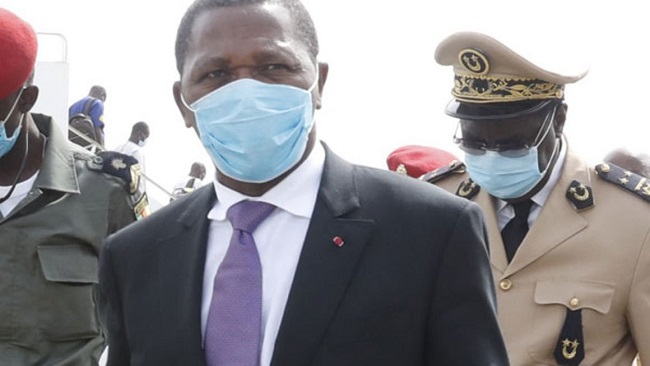
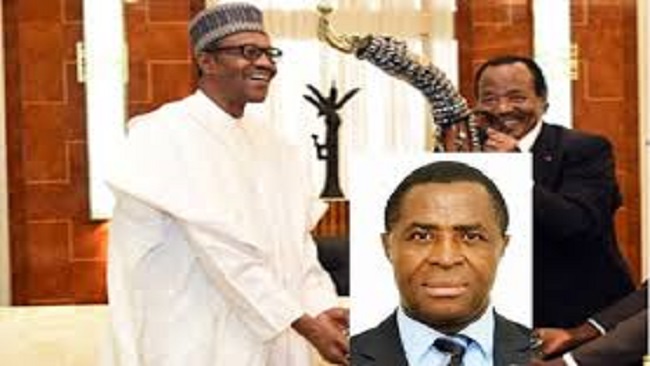

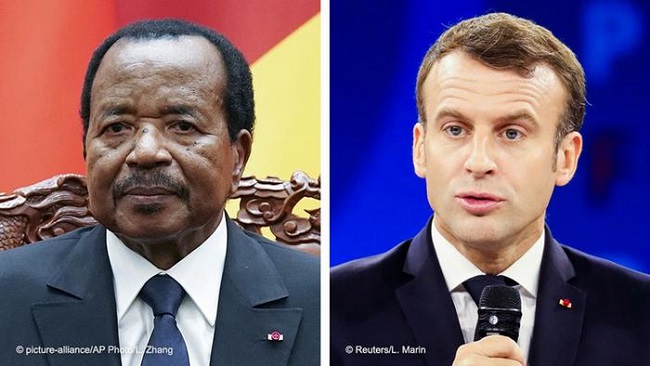
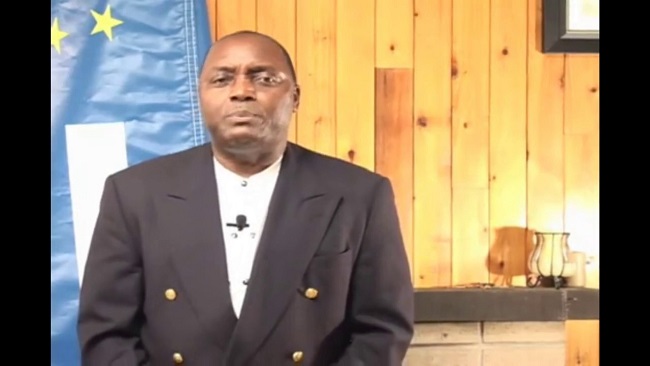
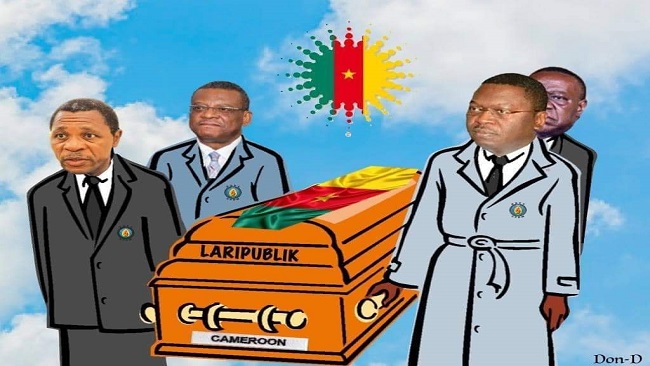
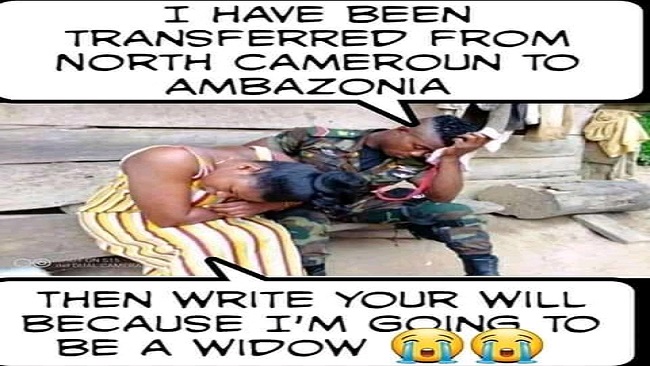
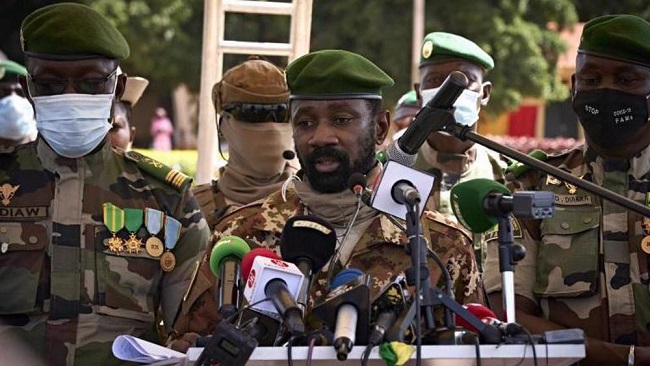
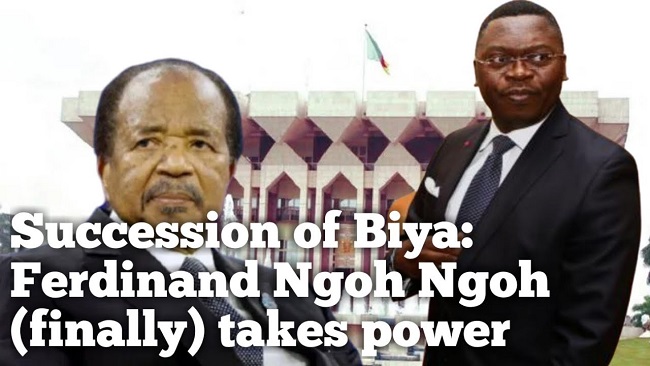

















24, August 2021
US Vice President Kamala Harris accuses China of using intimidation to back South China Sea claims 0
U.S. Vice President Kamala Harris on Tuesday accused China of coercion and intimidation to back unlawful claims in the South China Sea, in her most pointed comments on China on a visit to Southeast Asia, a region she said was critical to U.S. security.
Harris’s seven-day trip to Singapore and Vietnam is aimed at standing up to China’s growing security and economic influence globally and addressing concerns about China’s claims to disputed parts of the South China Sea.
Diverting attention and resources to the region has become a centrepiece of President Joe Biden’s administration, as it turns away from old security preoccupations with the withdrawal of U.S. forces from Afghanistan.
The U.S. administration has called rivalry with China “the biggest geopolitical test” of the century and Southeast Asia has seen a series of high-profile visits by top administration officials, including Secretary of Defense Lloyd Austin.
“We know that Beijing continues to coerce, to intimidate and to make claims to the vast majority of the South China Sea,” Harris said in a speech in Singapore.
“These unlawful claims have been rejected by the 2016 arbitral tribunal decision, and Beijing’s actions continue to undermine the rules-based order and threaten the sovereignty of nations,” she said, referring to an international tribunal’s ruling over China’s claims in The Hague.
China rejected the ruling and has stood by its claim to most of the waters within a so-called Nine Dash Line on its maps, parts of which Brunei, Malaysia, the Philippines and Vietnam also claim.
China has established military outposts on artificial islands in the waters, which are crossed by vital shipping lanes and also contain gas fields and rich fishing grounds.
The U.S. Navy regularly conducts “freedom of navigation” operations through the disputed waters, which China objects to, saying they do not help promote peace or stability.
On board the USS Tulsa, a U.S. combat ship at the Changi Naval base in Singapore on Monday, Harris told U.S. sailors “a big part of the history of the 21st century will be written about this very region” and their work defending it was pivotal.
On Monday, Harris began her trip by meeting Singapore’s Prime Minister Lee Hsien Loong.
They discussed the importance of upholding a rules-based international order and freedom of navigation in the Indo-Pacific region, expanded cybersecurity cooperation and efforts to shore up critical supply chains between their countries. “Our partnerships in Singapore, in Southeast Asia and throughout the Indo-Pacific are a top priority for the United States,” Harris said on Tuesday, adding the region was “critically important to our nation’s security and prosperity”.
A top Chinese diplomat last month accused the United States of creating an “imaginary enemy” to divert attention from domestic problems and to suppress China.
Part of her task during the trip will be convincing leaders in the region that the U.S. commitment to Southeast Asia is firm and not a parallel to Afghanistan.
Biden has faced criticism over his handling of the withdrawal of U.S. forces and the chaotic evacuation after the lightning takeover of Afghanistan by the Taliban.
Harris said the United States was “laser focused” on the task of “safely evacuating American citizens, international partners, Afghans who worked side by side with us, and other Afghans at risk”.
She also said that the United States had put itself forward to host a meeting of the Asia-Pacific trade group APEC in 2023, which includes the United States, China and Japan.
(REUTERS)